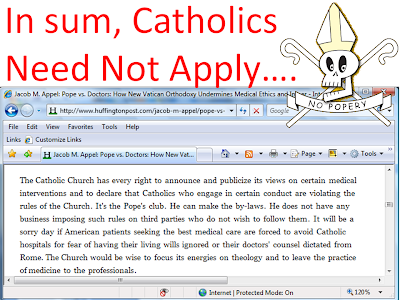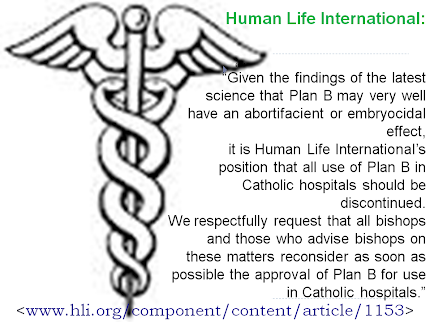
"....The valuable work that the Prelate Auditors are called to carry out diligently, in the name and under the mandate of the Apostolic See, is supported by the authoritative and well-established traditions of this Tribunal, which each one of you is bound to respect.
"....It is necessary to take note of the widespread and deeply-rooted, though not always evident, tendency to place justice and charity in opposition to one another, as if the two were mutually exclusive....some maintain that pastoral charity could justify every step towards declaring the nullity of the marriage bond in order to assist people who find themselves in irregular matrimonial situations. Truth itself, even if lip service be paid to it, tends thus to be viewed through a manipulative lens that would seek to adapt it, case by case, to the different requirements that emerge.
"....your ministry is essentially a work of justice: a virtue 'that consists in the constant and firm will to give their due to God and neighbour' (CCC, n. 1807) the human and Christian value of which it is more important than ever to rediscover, even within the Church. Canon Law is at times undervalued, as if it were a mere technical instrument....Canon Law must always be considered in its essential relationship with justice, in the recognition that, in the Church, the goal of juridical activity is the salvation of souls and that it 'constitutes a special participation in the mission of Christ the Shepherd... in realizing the order that Christ himself desired' (John Paul II, cf. Address to the Rota Romana, 18 Jan. 1990, AAS 82 [1990], p. 874, n. 4; L'Osservatore Romano English edition [ore]: 29 Jan. 1990, p. 6, n. 5)....one must also bear in mind, in any situation, that the process and the sentence are linked fundamentally to justice and must be placed at its service. The process and the sentence have a great relevance both for the parties to a dispute, and for the entire ecclesial body, and this acquires a most singular value when it entails a pronouncement on the nullity of a marriage which directly concerns the human and supernatural good of the spouses, as well as the public good of the Church. Over and above this dimension of justice that may be termed 'objective', there is another inseparable dimension which concerns those who 'implement the law', namely, those who make justice possible....they must be characterized by the high practice of human and Christian virtues, particularly prudence and justice, but also fortitude. This last virtue becomes more relevant the more injustice appears to be the easiest approach to take, insofar as it implies accommodating the desires and expectations of the parties or even the conditioning of the social context....the Judge...has the grave responsibility before God and men of his function, which includes due timeliness in every phase of the process: 'quam primum, salva iustitia [as soon as possible, while safeguarding justice] (Pontifical Council for Legislative Texts, Instruction Dignitas Connubii, art. 72). All those who work in the field of law, each according to his proper function, must be guided by justice. I am thinking particularly of the advocates, who must not only pay full attention to respecting the truth of the evidence, but also, as trustworthy lawyers, carefully avoid assuming patronage of causes which, according to their conscience, cannot be objectively supported.
"The action...of those who administer justice cannot prescind from charity....it is important to take definite steps, every time one glimpses hope for a favourable outcome, to induce the spouses if possible to convalidate their marriage and restore conjugal living (cf. CIC, can. 1676). Moreover, one should try to establish between the parties a climate of human and Christian openness that is based on the search for the truth (cf. Dignitas Connubii, art. 65 2-3).
"...every work of authentic charity includes an indispensable reference to justice, all the more so in our case. 'Love caritas is an extraordinary force which leads people to opt for courageous and generous engagement in the field of justice and peace' (Caritas in Veritate, n. 1). 'If we love others with charity, then first of all we are just towards them. Not only is justice not extraneous to charity, not only is it not an alternative or parallel path to charity: justice is "inseparable from charity', and intrinsic to it' (ibid., n. 6). Charity without justice is not charity, but a counterfeit.... as my Predecessor, Venerable Pope John Paul II, said in his Address on the relationship between pastoral care and the law: 'The judge... must always guard against the risk of misplaced compassion, which could degenerate into sentimentality, itself pastoral only in appearance' (18 Jan. 1990, in AAS, 82 [1990], p. 875, n. 5; ORE, 29 Jan. 1990, p. 5, 6. n. 5).
"One must avoid pseudo-pastoral claims that would situate questions on a purely horizontal plane, in which what matters is to satisfy subjective requests to arrive at a declaration of nullity at any cost, so that the parties may be able to overcome, among other things, obstacles to receiving the Sacraments of Penance and the Eucharist. The supreme good of readmission to Eucharistic Communion after sacramental Reconciliation demands, instead, that due consideration be given to the authentic good of the individuals, inseparable from the truth of their canonical situation. It would be a false 'good' and a grave lack of justice and love to pave the way for them to receive the sacraments nevertheless, and would risk causing them to live in objective contradiction to the truth of their own personal condition.
"Regarding truth, in my Addresses to this Apostolic Tribunal in 2006 and 2007, I stressed that it is possible to arrive at the truth on the essence of marriage and the reality of every personal situation that is submitted to the jurisdiction of this tribunal (28 Jan. 2006, in AAS 98 [2006], pp. 135-138; ORE, 8 Feb., p. 3, n. 6; and 27 Jan. 2007, in AAS 99 [2007], pp. 86-91; ORE, 31 Jan., p. 3, n. 5), and also the truth of matrimonial processes (cf. Dignitas Connubii, artt. 65 1-2, 95 1, 167, 177, 178). Today I wish to emphasize that both justice and charity postulate love for truth and essentially entail searching for truth. In particular, charity makes the reference to truth even more exacting....
"...an emptying of this kind can take place not only in the act of judging but also in the theoretical concepts that greatly influence concrete judgments....existential, person-centred and relational consideration of the conjugal union can never be at the expense of indissolubility, an essential property which, in Christian marriage, obtains, with unity, a special firmness by reason of the sacrament (cf. CIC, can. 1056). Moreover, it must not be forgotten that matrimony is favoured by the law. Consequently, in case of doubt, it must be considered valid until the contrary has been proven (cf. CIC, can. 1060). Otherwise, there is a grave risk of losing any objective reference point for pronouncements on nullity, by transforming every conjugal difficulty into a symptom of failure to establish a union whose essential nucleus of justice the indissoluble bond is effectively denied...."






















































